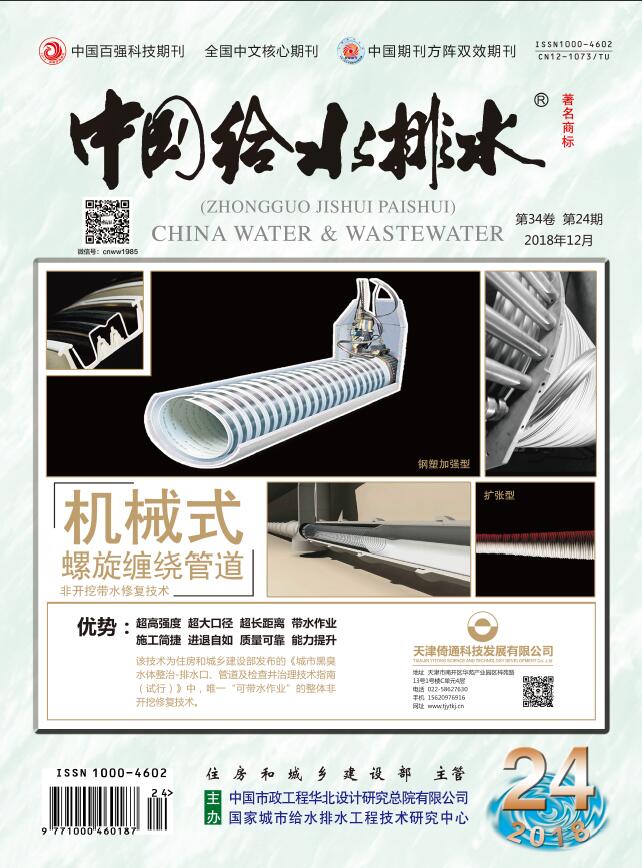HANJia-yan,JIYuan,LIUWen-hao,et al.Influence of Temperature on Decontamination Efficiency and By-products Generation of Agal-Bacterial Granular Sludge[J].China Water & Wastewater,2024,40(17):16-22.
Influence of Temperature on Decontamination Efficiency and By-products Generation of Agal-Bacterial Granular Sludge
China Water & Wastewater[ISSN:1000-4062/CN:12-1073/TU]
volume:
第40卷
Number:
第17期
Page:
16-22
Column:
Date of publication:
2024-09-01
- Keywords:
- algal-bacterial granular sludge; microalgae; temperature; alginate-like exopolysaccharide; lipid
- Abstract:
- This paper investigated the impacts of low temperature (12-15 ℃) and room temperature (20-25 ℃) on the formation, nutrient removal, and by-product generation of agal-bacterial granular sludge (ABGS). After 30 days of operation at low temperature and illumination, no chlorophyll-a (Chl-a) was detected in the aerobic granular sludge (AGS), and the particle size of the AGS remained relatively constant at 0.8-0.9 mm, indicating limited formation potential for ABGS under low temperature condition. After the temperature was increased to ambient levels, green algal-bacterial granules were observed on Day 40 (the 10th day at room temperature), and mature ABGS with an average Chl-a of 5.73 mg/gVSS were obtained after 70 days of operation. The rise in temperature and algae growth led to a significant increase in the particle size of ABGS (0.9-2.3 mm). In comparison with the low temperature stage, the TIN average removal rate of ABGS at room temperature increased from 50% to 64%. Moreover, the alginate-like exopolysaccharide (ALE) and lipid contents in ABGS increased by 103.2% and 95.6%, respectively. High-throughput sequencing results revealed that the distribution and abundance of bacterial community composition were influenced by temperature and microalgae growth, with Chlorella, Choricystis, and Scenedesmus being the dominant algae in ABGS.
Last Update:
2024-09-01

